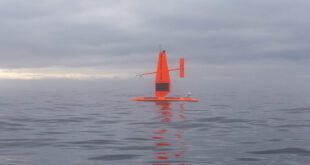New Grant Thornton study explores impact of oil spill on deepwater exploration and production businesses
NEW YORK, August 23, 2010 – Grant Thornton LLP’s Corporate Advisory & Restructuring Services (CARS) today announced the release of The implications of the oil spill on deepwater exploration and production, a study outlining the ramifications stemming from BP’s Macondo well disaster for energy exploration and production (E&P) businesses, analyzing how a tougher regulatory environment, enhanced safety, new inspection procedures and consolidation will impact the business of deepwater drilling in the Gulf.
While the consequences of the Deepwater Horizon oil spill have yet to be fully revealed, the implications for E&P companies are expected to spread well beyond the Gulf of Mexico. The new white paper from Grant Thornton explores how a number of financial, legal and regulatory developments, coupled with new guidelines from the White House Council on Environmental Quality and the U.S. Department of the Interior, are likely to increase financial and operating costs for deepwater drilling businesses and reshape the E&P industry in the Gulf.
E&P companies will be under greater financial pressure as capital providers and insurers demand a higher risk premium for deepwater exploration activities and increase borrowing and insurance costs in light of this summer’s oil spill. Moody’s Investors Service, for instance, has estimated that premiums for offshore drilling platforms are likely to mushroom as much as 50%, threatening the survival of exploration businesses without adequate capital resources. As a result, larger and more well-established energy companies will gain the upper hand in the Gulf, which accounts for 19% of U.S. crude oil reserves and 15% of total U.S. oil and gas reserves.
“As all of the costs associated with operating in the Gulf continue to rise, deepwater drilling will increasingly become the province of only the largest, most well-capitalized companies,” says Rob Moore, a Director in Grant Thornton LLP’s CARS practice and co-author of the study. “We’ll also likely see a wave of mergers and acquisition activity across the E&P industry that will leave deepwater Gulf drilling concentrated among a handful of large energy companies as smaller players get absorbed through strategic purchases or wind down their operations. Additionally, asset divestitures by businesses under financial duress will create new transaction opportunities for both strategic and financial acquirers interested in capitalizing on acquisition opportunities.”
The white paper analysis examines a number of factors that will influence the future of deepwater drilling in the Gulf including:
* The natural market reaction to the oil spill and the repricing of risk in light of BP’s $70 billion loss in market capitalization.
* Proposed regulatory changes and the impact of stiffer civil and criminal penalties on deepwater exploration, and the case for industry self-regulation.
* How industry consolidation by larger E&P companies could result in a decline in Gulf oil production.
* The long term consequences of regulation and policymaking.
“Policymakers need a balanced outlook; they should consider a number of factors when making long-term regulatory changes affecting the oil and gas industry,” said Loretta Cross, Managing Partner of Grant Thornton LLP’s CARS practice and co-author of the white paper.
To obtain a copy of The implications of the oil spill on deepwater exploration and production, please visit www.GrantThornton.com/oilspill.
 Alternative Energy HQ solar power for homes, wind energy, and bio fuel issues
Alternative Energy HQ solar power for homes, wind energy, and bio fuel issues






